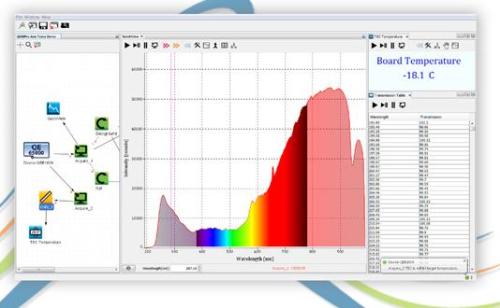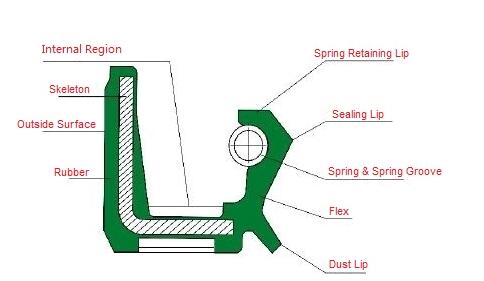 Ocean Optics has officially launched OceanView's new generation of spectral software, which has powerful data processing capabilities and a clear user graphical interface that can be used with the company's miniature spectrometers. OceanView is highly customizable and includes a graphical view that provides a roadmap of data flow from the input of spectra to the processing of results.
Ocean Optics has officially launched OceanView's new generation of spectral software, which has powerful data processing capabilities and a clear user graphical interface that can be used with the company's miniature spectrometers. OceanView is highly customizable and includes a graphical view that provides a roadmap of data flow from the input of spectra to the processing of results. OceanView displays and uses the spectral data provided by the ocean optical spectrometer. The flexibility is enhanced, temperature, voltage and other input data can be integrated, and the user can capture and see data from multiple sources. In addition, OceanView is able to save and reload previous experiments and settings, making it easy to call acquisition parameters and open files. Users can customize the OceanView interface and then use these custom interfaces, eliminating the need to re-architect the background each time.
OceanView is inspired by customer feedback from a variety of applications through which users can control experiments highly. The schematic diagram (ie, the flow chart indicating each step) can be used as a data processing solution in the process from input to result, and can also be used as a tool to check and modify this process during operation. This software provides results in the form of answers instead of simple waveforms. More than 70 schematic nodes or connection points can be drawn in the diagram. This software also includes other experimental control functions such as spectral slicing, interpolation, and device output control.
Oil seal is a mechanical components that used to seal oil (oil is the most common transmission system liquid material), It`s isolated the lubricated components with other components, not let the lubricate oil leakage.
Oil Seal is generally divided into single-type and assembly type, assembly type is the skeleton and lip material can be free combination, generally used for special oil seals.
Oil seal can have different names, customary general rotary axis lip seal called oil seal, the static seal and dynamic seal (general reciprocating motion) was called seal parts.
The representative form of oil seal is TC type, is a double lips oil seal with a fully rubber coated and garter spring, generally speaking oil seal refers to TC skeleton oil seal, skeleton oil seal diagram see Figure:

Generally when the oil seal is working ,its lips area temperature is higher 20-50℃ than working medium. Make sure you noted this when you select the oil seal products.
Oil seal operating range is related to its material:
NBR: -40 to 120℃,
ACM: -30~180℃
FPM: -25~300℃
Application:
Any operate case which have liquid lubricants inside and need to connect with outside also, the connect place is required of oil seals.
Engine: crankshaft - crankshaft front and rear oil seal, valve - valve oil seal (engine repair kit o-ring) (distributor oil seal, pump oil seal, balance shaft oil seal, oil pump seal ...);
Camshaft - camshaft oil seal ; Transmission: transmission front oil seal, transmission rear oil seal, transmission shift oil seal (transmission repair kits o-ring)
Sub actuator front oil seal, Sub actuator rear oil seal,
rear axle: axle oil seal
Rear Wheel Oil Seal
Front Wheel Oil Seal
Directional Oil Seal (Directional Machine Repair Kit o - ring)
Directional Booster Oil Seal (Front Axle Oil Seal).
Air compressor crankshaft oil seal
Oil Seal,Silicone Rubber Oil Seal,TC Oil Seal,Valve Stem Oil Seal
NINGBO BEILUN QIANYI SEALING CO.,LTD. , https://www.hapgasket.com